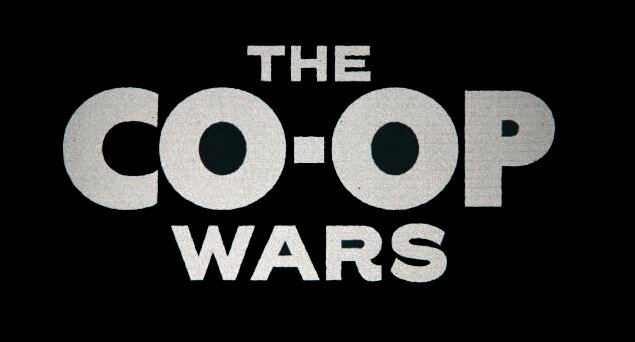Members of the USA Cooperative Youth Council meet with Sen. Al Franken as part of Co-op Week 2015.
Making Radical Roots, we’ve focused on the vibrant youth culture that created the natural food co-ops in the 1970s, but also wanted to know how youth are involved in co-ops today. Luckily, we know Emily Lippold Cheney, who has dedicated herself to engaging young people in cooperatives from the very local level to the biggest international stages.
On the local level, she created the Youth Traveling Cooperative Institute, based on “my dream that I had out in California to live in a van and drive around and tell people about co-ops.” When she mentioned this to former Northcountry Cooperative Foundation staffer Bill Patrie, he suggested she pitch the idea to the Foundation’s Kris Olsen Traveling Institute. "I think they were also tickled by it, in that this program was much like when Kris Olsen was in his truck and go drive wherever to help people start a co-op. It is very much a memorial to him."
She has now completed her second round of trips to rural areas in the Upper Midwest, often partnering with local groups to find young people looking for a different way to solve problems for their communities. Participants varied from people in the Upper Peninsula looking for alternative economic development models to the mining industry, to a successful café owner looking to sell his business to his employees, to a group of artisans outside Stevens Point, Wis. wanting to market their wares cooperatively.
On the national and international level, Emily has been working with the USA Cooperative Youth Council to increase youth involvement in movement leadership. “There are all these movement spaces created by conferences that are not particularly inspiring and not particularly representative of the cooperative movement as a whole.” She focuses on “putting more young people into the space, and in terms of diverse identities beyond youth, it’s pretty easy for us because of our constituent base.”
She sees the role of youth as one of critique and challenge, and feels that this helps make the movement stronger. In international forums she has seen leaders of other country’s movements mentoring young people and helping them build relationships, something she sees as lacking in the US. “We have to throw out elbows. We have to scratch and piss people off to get in the space.” Here’s hoping that her and her collaborators are successful in getting cooperative leaders to see the importance of developing the next generation of leaders.

